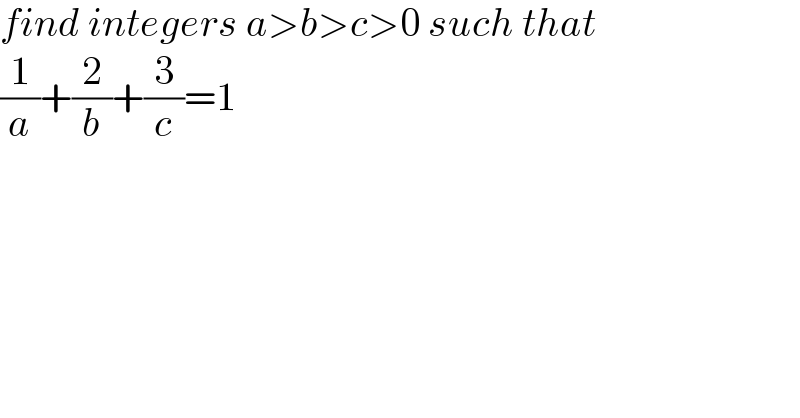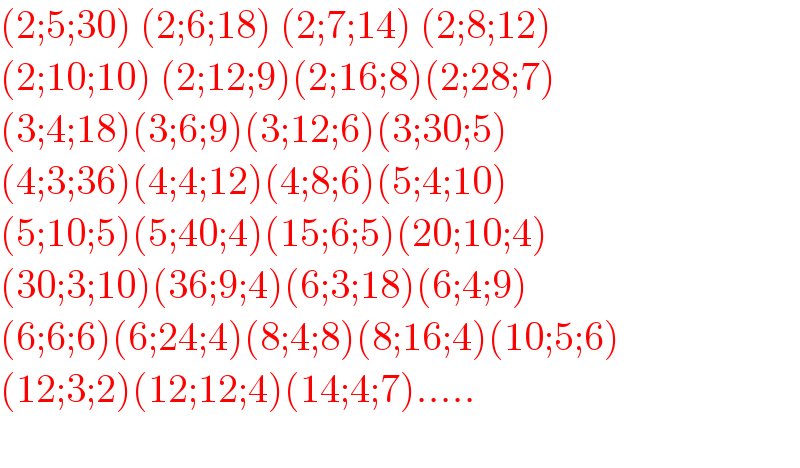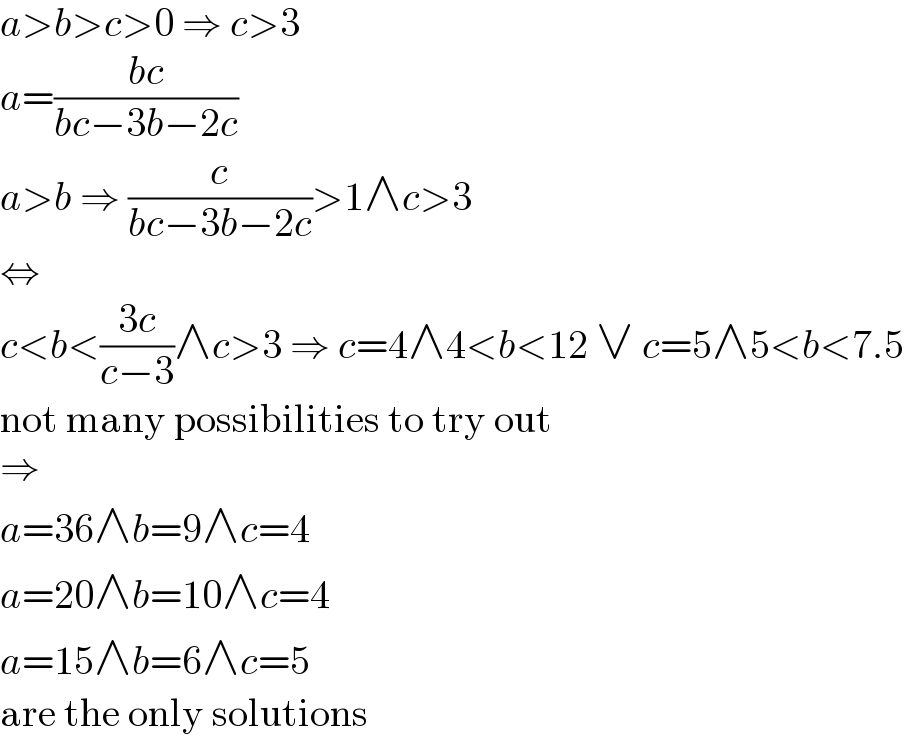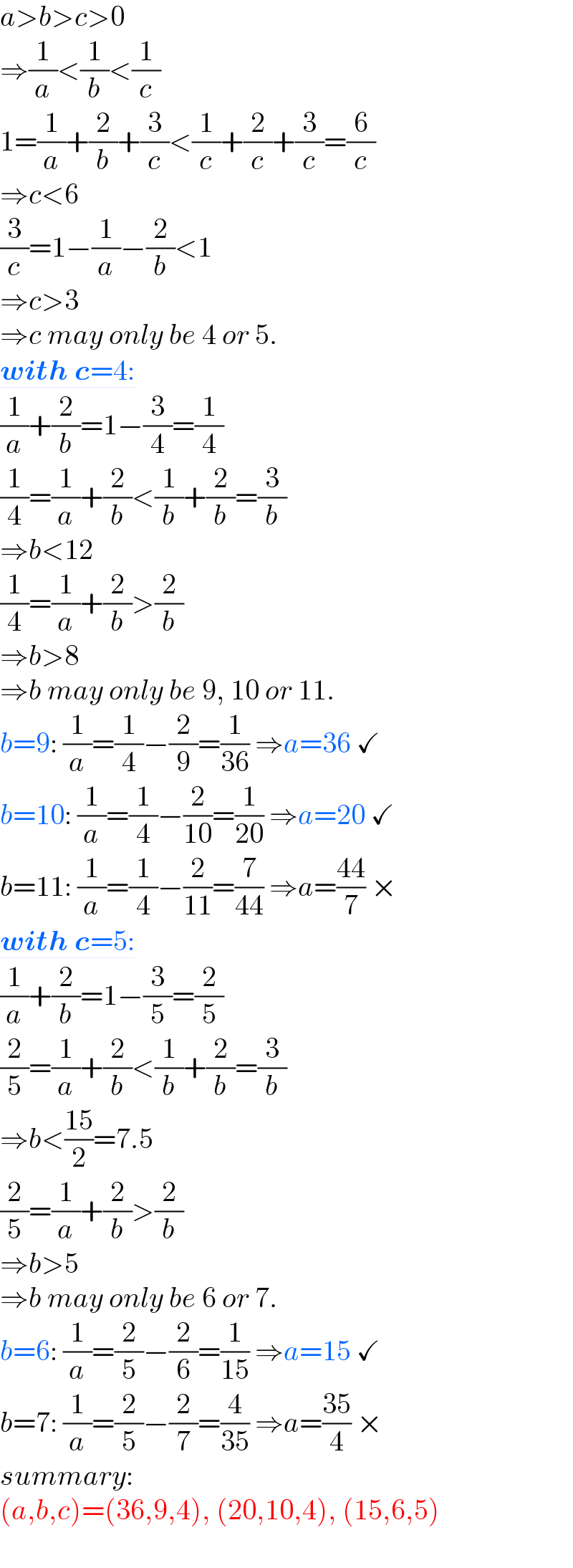
Question and Answers Forum
Question Number 181837 by mr W last updated on 01/Dec/22

Commented bySEKRET last updated on 01/Dec/22

Commented bymr W last updated on 01/Dec/22

Answered by prakash jain last updated on 01/Dec/22

Commented bymr W last updated on 01/Dec/22

Answered by MJS_new last updated on 01/Dec/22

Commented bymr W last updated on 02/Dec/22

Answered by mr W last updated on 02/Dec/22

